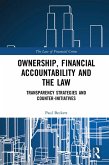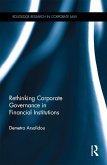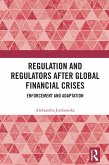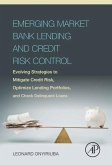In the next wave of conduct regulation in financial markets, from 2021 conduct regulators in the UK and elsewhere expect firms to produce evidence on how they are improving behaviour and culture. Facing this, many practitioners are anxious that their current reporting and management information (MI) are irrelevant to meeting as-yet unclear regulatory expectations.
This book provides the insights and tools firms need to report on culture, securing both enhanced business value and the regulator's approval. Culture is now seen as a key contributor to good governance, feeding into existing discourse on environmental, social and governance (ESG) factors and the emerging dialogue on 'non-financial (mis)conduct', but conventional measures of business quality are unfit for the new reporting agenda. Culture Audit in Financial Services follows the arc of 'behavioural regulation' to examine what the regulator really wants, before offering guidance on how culture audit differs from conventional auditing, how to put the latest pure-research findings to work, and the key features of well-designed conduct and culture reports.
Written by an impartial author and a variety of contributors with extensive experience working with practitioners, regulators, and many of the world's finest academic initiatives, this book is filled with practical, grounded advice on how best to approach this new challenge and avoid infractions.
This book provides the insights and tools firms need to report on culture, securing both enhanced business value and the regulator's approval. Culture is now seen as a key contributor to good governance, feeding into existing discourse on environmental, social and governance (ESG) factors and the emerging dialogue on 'non-financial (mis)conduct', but conventional measures of business quality are unfit for the new reporting agenda. Culture Audit in Financial Services follows the arc of 'behavioural regulation' to examine what the regulator really wants, before offering guidance on how culture audit differs from conventional auditing, how to put the latest pure-research findings to work, and the key features of well-designed conduct and culture reports.
Written by an impartial author and a variety of contributors with extensive experience working with practitioners, regulators, and many of the world's finest academic initiatives, this book is filled with practical, grounded advice on how best to approach this new challenge and avoid infractions.









